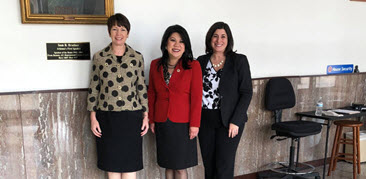Cutting red tape – occupational licensing reform moving in Arizona and other states
January 29, 2019

The AICPA’s State Regulation and Legislation team is monitoring anti-licensure legislative activity around the country that could negatively affect the CPA profession and CPA mobility. This year 11 state legislatures have introduced anti-licensing reform bills.
During the 2018 legislative session, the Arizona legislature passed SB 1443, a bill that reduced regulation and encouraged lean government. In addition to curbing excess regulations, the Arizona Society of CPAs made sure SB 1443 included several positive changes for the CPA profession. The bill reduced the requirement for some firms to register with the Arizona State Board of Accountancy (ASBA), expanded the definition of accounting services to include the terms attest and compilation services, which were separately defined statutory terms, and amended the ASBA’s unlawful use of the designation statute, allowing the use of other new titles, such as the Chartered Global Management Accountant (CGMA), to be used in the accounting profession.
This legislation came after Governor Doug Ducey’s fourth executive order renewing his freeze on all new regulations by state agencies. Regulatory reform has been a key part of his administration since issuing his first executive order as Governor in 2015.
The AICPA supported the Arizona Society of CPAs (ASCPA) efforts to promote and protect the CPA profession in the legislation. ASCPA CEO Cindie Hubiak said the ASCPA created this successful legislation by working with members, the Accountancy Board and then Senator Kimberly Yee, who is now Arizona’s Treasurer. Hubiak notes, “When Governor Ducey established his Red Tape Reduction Initiative, we reached out to our members for suggestions, comments and ideas. We collaborated with the Arizona Board of Accountancy to draft legislation which ultimately passed unanimously.”
